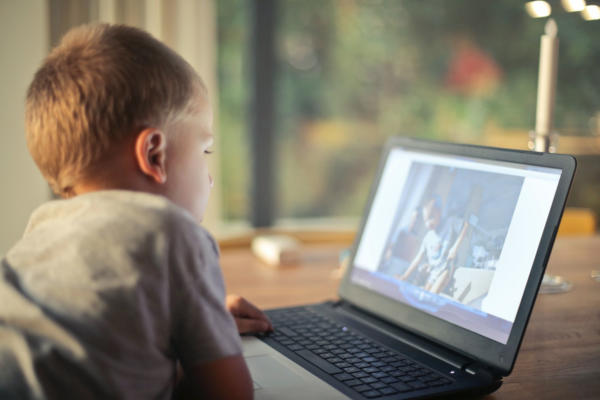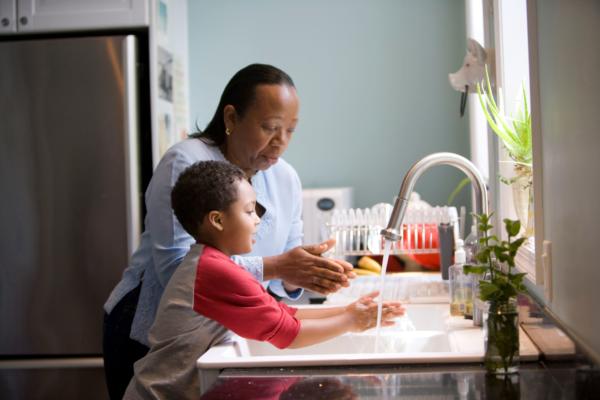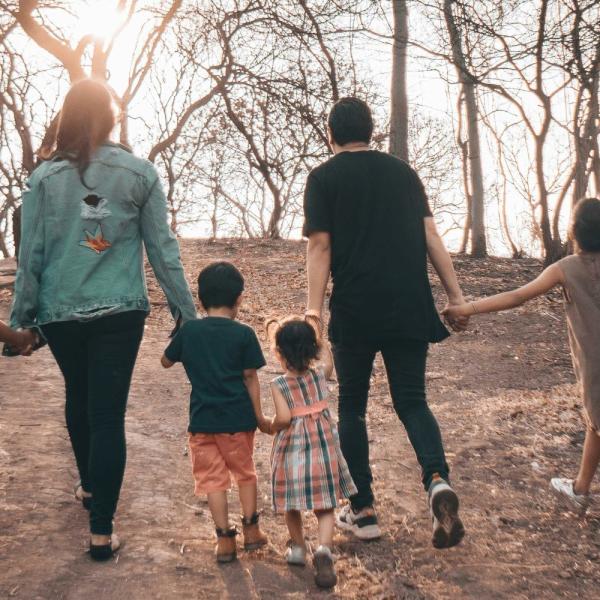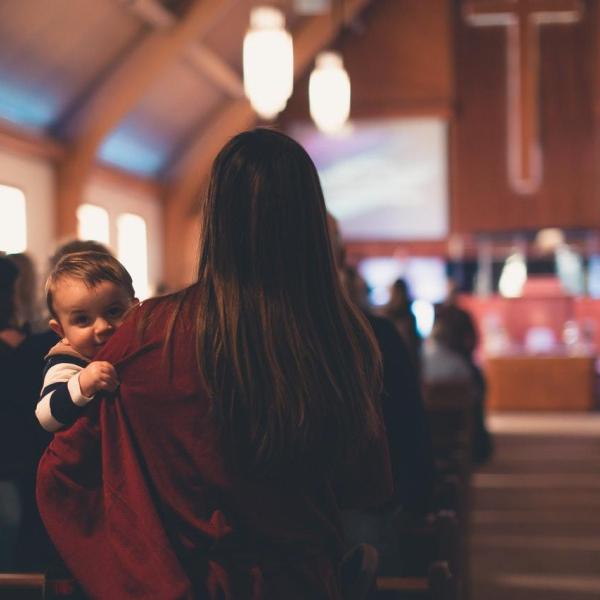We fostered a teenager in lockdown
Welcoming a teenager into our home of four young children was a great decision for us.
At the beginning of lockdown, our household consisted of me, my husband, our three birth children aged 11, 9 and 7, and our 2-year-old adopted daughter. We had fostered her from birth and adopted her in November through a process called concurrent care.
The only experience we had with caring for teenagers had been before we had started the fostering and adoption process. We had taken in a 19-year-old, who had significant mental health struggles. As a result, she also had physical and emotional needs. As she was older, it wasn’t a formal placement, but the six months she spent with us taught us a lot about the needs of a teenager.
Fostering a teenager had been on our radar. There is such a need for more people to come forward to look after older children. There’s a thought that more people are comfortable welcoming a primary-school-age kid, but there is a real lack of homes for children aged 11+ and there’s also a need for carers who can open their home to unaccompanied asylum-seeking children, who are often teenagers. We’d discussed the possibility of meeting that need at some point but saw this as something for much further down the line.
Then Coronavirus hit. Because we had adopted through a concurrent care placement, we had dual approval as both foster carers and adopters, and we hadn’t yet been removed from the list of foster carers in our Trust. The Trust anticipated that foster carers considered high risk would need to step down during lockdown, and more children would enter care or need to move, straining their services. So, they called around any adoptive parents on their books to see if they would consider stepping up to foster during the crisis. We said they could consider us if the need arose.
The need did indeed arise, and quite early on in lockdown. We got a phone call around teatime on a Thursday evening, asking if we could take in a 16-year-old girl. She had been in supported living and needed to leave by lunchtime the following day. We were the last number on their list. If we said no, she had nowhere to go.
Our teatime was filled with family conversation about whether we could take in another child. We will always intentionally involve all our children in decisions around fostering. They’re very aware that there are children who need to stay with another family for a number of different reasons.
The younger ones were immediately on board. The older two were a little more pensive. But they asked, ‘Why wouldn’t we?’ It was a great question. Of course, there were many practical implications, but ultimately, we felt we had the space and the time to welcome her into our home for as long as she needed it.
I called the social worker first thing, and spent the morning turning a little boy’s bedroom into something suitable for a teenage girl. Pulling back the bed produced all sorts of weird and wonderful things!
That first lunch was a little bit awkward. My nursing background means I’m pretty good at small talk, but she was quite withdrawn. She sat with her head down and spoke very quietly. My 7-year-old, who is incredibly creative and equally kind, made her a big welcome card. And our youngest is just a joy-bringer, you couldn’t help but smile when you see her. She broke the ice a bit.
She joined in family activities, but I wouldn’t have said that she was completely relaxed for quite a while. I think she was wanting to appease us. As time went on, she could be more herself. I think she does feel part of the family now. We’ve just encouraged and affirmed her the best we can and loved her. It’s been a positive experience on the whole for everybody.
My husband was apprehensive at first. He was honest that having a teenage girl in the house was out of his comfort zone, and it was certainly right for me to take the lead in engaging with her, but he fully supported the decision to welcome her in.
I think in general society there’s a lot of opinions around young people, that they can be a troublesome. But whenever you get to know a person it changes everything. And of course, even if you go in with realistic expectations, armed with all the knowledge, when you’re living it, it’s always different.
I think for our family, practically speaking, caring for a teenager works better than another child of a similar age. Our youngest has very practical needs to meet, whereas with a teenager it’s more emotional support. She will often sleep until later in the day, so her needs are at a different time. I feel like it wasn’t as much of a strain on me as having another younger child could have been.
I think lockdown brought a sense of false security because we were all at home and she couldn’t go out. She’s really creative, very good at music and baking. She has so much potential and we really enjoyed seeing that in her, affirming her, and spending time with her. Beyond the usual teenage struggles about messy bedrooms and dirty dishes, we were largely protected by the context.
As lockdown eases that might change. She’s been without freedom for so long and its nerve-wracking letting her into the big wide world. That has definitely been challenging over the past week or so. We can’t make choices for her, but we can offer advice. And then we need to trust God and not beat ourselves up too much.
Following Jesus’ example and trying to live a life of hospitality brings its challenges, but there is so much joy and richness that comes with it. I would encourage anyone to ask themself the same question our 11-year-old asked us when we proposed that we foster a teenager: ‘Why would we not?’
Related pages

Why does my son freak out on Zoom calls?
For so many of us this technology is a gift. The connection it brings us is precious. However, for those caring for vulnerable children, it can also herald new challenges.
Read more
Understanding the impact of social distancing for foster and adoptive families
Social distancing will create additional challenges for all of us, and our families will find the changes and separation difficult in a number of ways.
Read more
Adoption Support Fund FAQs around COVID-19
Adoption Support Fund in light of Coronavirus outbreak
Read moreYou might also be interested in

Articles
Reflecting on Good Friday
Despite the outward appearance of a crushing setback, Good Friday was a day of triumph, unveiling God's divine plan and the true nature of his reign.
Read more
Articles
The Church: a community of shared light
Our Northern Ireland and Nations’ Lead, Roger Cooke shares some reflections on fire, community and the Olympic Games.
Read moreI would like to find out what is
going on in my area
Join our mailing list for the latest Home for Good news and ways to get involved.
Together we can find a home for every child who needs one.
£25 per month could help us create and collate inspiring articles and blogs that encourage and inform the families and communities who care for vulnerable children








 Thank you, you're giving:
Thank you, you're giving: